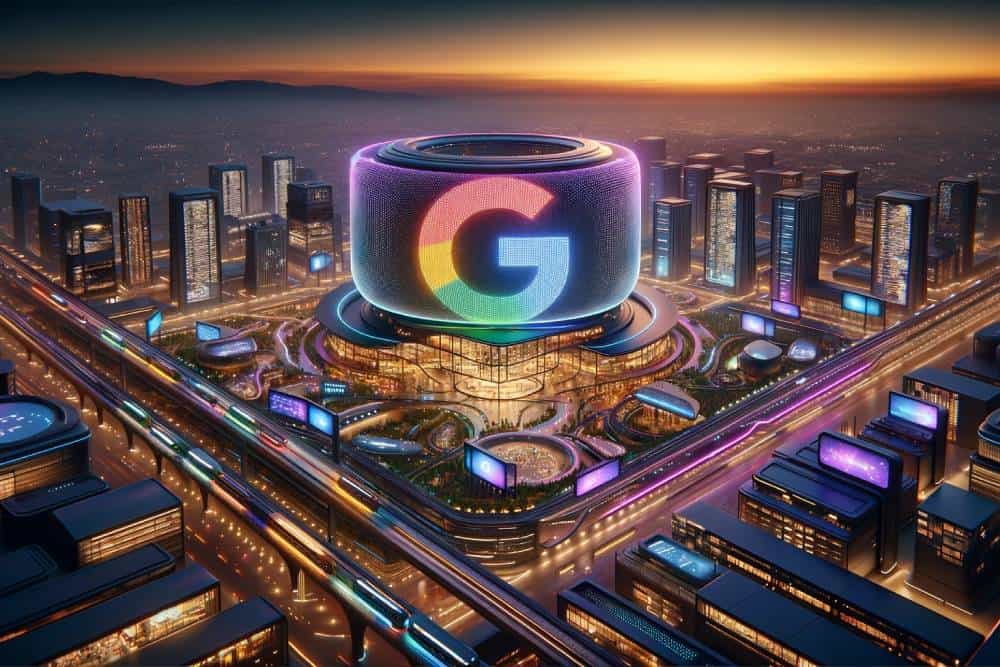ReviewsBlogContact
Start Your Project

The maze of SEO can be daunting, yet mastering its twists and turns can lead you to the coveted prize of higher website ranking. That's where E.E.A.T comes in - a guiding principle that stands for Experience, Expertise, Authoritativeness, and Trustworthiness. Through the lens of Google, these are the quality markers that help assess your website's content. Why does it matter, you ask? By tailoring your content to meet these markers, you're essentially speaking Google's language, and consequently, you're more likely to be rewarded with improved SEO rankings. So, if you've been searching for ways to enhance your SEO game, stick around as we unravel the mysteries of E.E.A.T and how it can give your strategy a considerable boost. Incorporating E.E.A.T into your approach doesn't just elevate blog posts and informative articles; it also plays a pivotal role in shaping effective product page SEO strategies. By showcasing authentic user experiences, detailed expertise about your products, and authoritative reviews or testimonials, you can build trust and authority that resonates with both users and search engines. This ensures your product pages not only rank higher but also convert better, making E.E.A.T a cornerstone of long-term SEO success.
To fully grasp Google's E.E.A.T, it's crucial to delve into its components: Experience, Expertise, Authoritativeness, and Trustworthiness, and how these factors influence the overall quality and ranking of your content. Google's E.E.A.T Framework is a key determinant in how your content is evaluated and ranked on search engine results. Several factors affect E.E.A.T. First, your content must exhibit experience and expertise. It's not enough to know your stuff; you've got to show it. This means well-researched, thorough, and factually accurate content. Second, authoritativeness and trustworthiness come into play. Are you a recognised authority in your field? Do other reputable sources reference your content?
Don't overlook the characteristics of high E.E.A.T content. Your content should be current, accurate, and comprehensive. It should also provide clear author profiles and authoritative sources. Conversely, low E.E.A.T content often contains factual inaccuracies, misleading information, or unclear authorship. Lastly, consider E.E.A.T in the context of AI-generated content. While AI can create content, it lacks the human touch of experience and expertise, which can impact its E.E.A.T score. Therefore, human review and editing of AI content is essential.
Understanding the importance and impact of E.E.A.T can significantly boost your SEO strategy, as it's a key component Google uses to gauge the quality and trustworthiness of your content. Google's E.E.A.T and SEO are closely intertwined; improving your E.E.A.T can enhance your SEO performance. Building trust with E.E.A.T is crucial. Google wants to provide users with reliable, trustworthy content. To enhance your E.E.A.T, ensure your content is accurate, transparent, and backed by authoritative sources. This builds trust with both Google and your audience, leading to better SEO results. E.E.A.T also influences content quality. Google favours content that demonstrates expertise and authority, reinforcing the need for in-depth, well-researched content.
Lastly, E.E.A.T and mobile optimisation go hand in hand. Google prioritises mobile-friendly websites, so ensure your site is optimised for mobile to enhance both E.A.T.T and SEO.
When it comes to evaluating E.E.A.T, Google's Quality Raters play a crucial role, thoroughly examining your content for expertise, authoritativeness, and trustworthiness. They're essentially the gatekeepers in Google's E.E.A.T evaluation system, ensuring that each piece of content meets Google's high standards.
Factors affecting E.E.A.T are numerous, ranging from the author's credentials to the accuracy of the information provided. Low E.E.A.T content often lacks expertise, presents misleading information, or doesn't have clear authorship. On the contrary, high E.E.A.T content radiates authority and trust, boasting accurate and current information, clear authorship, and a comprehensive depth of knowledge.
It's worth noting that E.E.A.T doesn't only apply to human-written content. With the rise of AI-generated content, it's crucial to maintain these standards. While AI can generate information-rich content, it lacks the personal expertise and authority a human writer brings. Therefore, it's recommended to use AI content as a base, refining and enhancing it with your expertise to boost its E.E.A.T rating.
As you navigate the evolving landscape of content creation, you might encounter several challenges when dealing with AI-generated content, despite its potential benefits.
Google's policy on AI-generated content is still somewhat unclear. However, the tech giant has hinted at the need for human review and verification of such content. As you continue to leverage AI in content creation, keep these AI-generated content challenges in mind and strive to uphold the principles of expertise, authoritativeness, and trustworthiness.
Looking ahead, it's essential to consider the role of E.E.A.T in shaping future SEO trends. As search engines become more sophisticated, your SEO strategies need to evolve. User engagement is a key driver in this new SEO landscape. It's not just about getting people to your site; it's about delivering high-quality content that keeps them engaged. This ties directly into E.E.A.T, as providing expert, authoritative, and trustworthy content increases engagement. Mobile optimisation continues to be a crucial factor. With more people using mobile devices to access the web, ensuring your site is mobile-friendly is a must. This includes page speed, responsive design, and user-friendly navigation.
Content quality remains at the heart of SEO. It's not enough to have well-optimised keywords; your content must be valuable and trustworthy. This is where E.E.A.T comes in; it ensures your content is reliable, authoritative, and expertly crafted.
Understanding and implementing E.E.A.T in your SEO strategy is crucial in today's digital landscape. It's not just about writing good content, but it's about establishing your expertise, authority, and trustworthiness. By doing so, you're not only appeasing Google's quality raters, but also building a loyal audience. So, keep up with the latest SEO trends, fine-tune your content, and watch your online presence grow!
